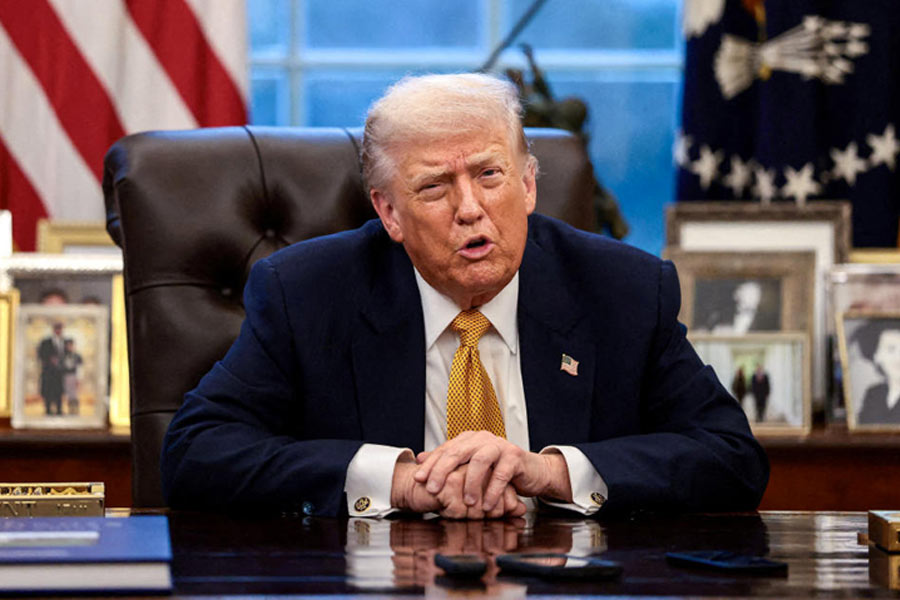 |
| Sponsors and associates being felicitated during EECT-08 on Sunday. Picture by Prashant Mitra |
Ranchi, Jan. 13: Talks about the concept of earning a green certificate invited a variety of opinions during the two-day national seminar on environmental economics and clean technology, EECT-08.
The meet that concluded at Shyamali community hall this afternoon threw up recommendations including adoption of a national policy for tackling hazards of global warming, institutional and social capacity building projects for safe drinking water and proper sanitation in both rural and urban areas, green housing technology for energy efficient and eco-friendly housing and reclamation of land at abandoned mining sites.
Though V. Ranganathan, IIM, Bangalore, compared the trading of green certificates with “buying pardon after committing a sin”, Rana S. Chakravarty of Mecon Limited, Ranchi, thought this was a motivation for industries in developing countries. This type of trading, he said, can not only reduce emission of greenhouse gases but industries of developing countries can also earn from it.
The topic was raised when the speakers pointed out that the Kyoto Protocol had promoted investment flow from developed to developing countries. It is now possible for industries in developing countries to earn a green certificate by reducing emission of greenhouse gases and trade the same with industrial units of developed countries. The developed countries can, by buying such certificates, display their responsibility towards society.
“Market based instruments” and “Clean development mechanism” were topics for discussion in the technical sessions today. In his paper, Chakravarty strongly advocated clean technologies that are energy efficient.
Subir Bhattacharya, a techno-economist from Mecon, said that when legislation alone cannot control pollution, market-based instruments such as pollution taxes, emission trading and environment liabilities, if imposed — as was done in certain European countries — can help.
When asked about what would happen when the term of the Kyoto Protocol expires in 2012, Bhattacharya said that possibilities of some other protocol emphasising a hybrid market-based instrument as suggested by the Nobel laureate Joseph Stigliz should be explored.
The seminar, organised by the Jharkhand unit of the Institute of engineers (India) during the institute’s 23rd annual convention was attended by about 200 delegates and addressed by eminent personalities from across the country.
Manufacturers such as Dustven, Blue Star, Simplex, Voltas and Thermax made their presentations on cost effective technological solutions for pollution control.
While K.D. Chaudhury, the chairman of the seminar’s technical committee, outlined the recommendations, Abhijit Bhattacharya, the director of Mecon, and A.K. Saxena, the chairman of Jharkhand unit of the Institute of engineers, addressed the valedictory session of the seminar among others.










